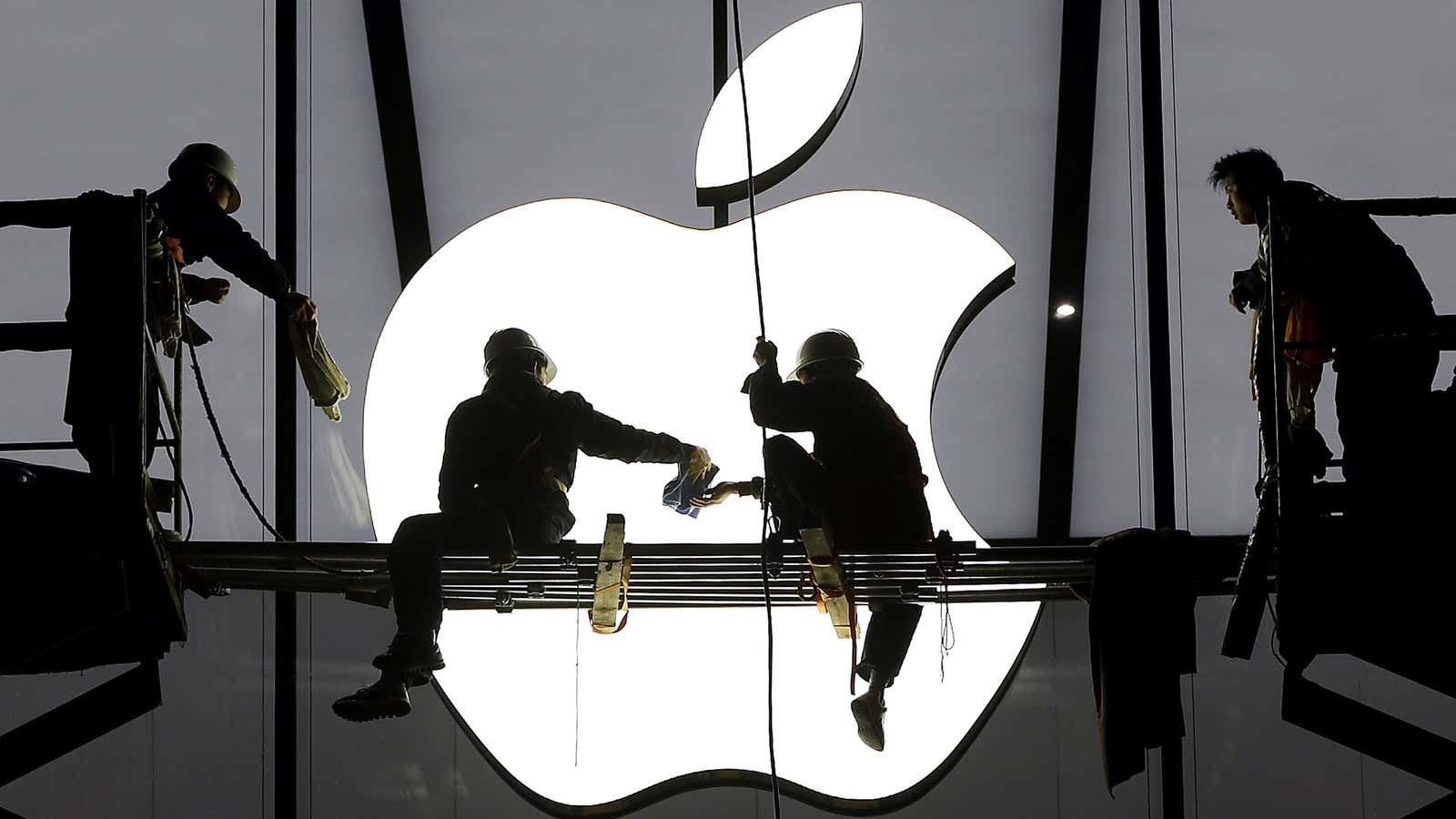China’s proposed law that would require tech companies to help the government spy on their users has been put on hold, according to the White House’s top cybersecurity official. The controversial law would have required foreign tech companies wishing to do business in China to make their encryption keys available to authorities, and build special “back doors” in their software to enable Chinese government surveillance.
Chinese legislators suspended a scheduled reading of that law last week, White House cybersecurity coordinator Michael Daniel said during a panel discussion at the Information Technology and Innovation Foundation on March 12. A senior Chinese official said the bill was not scheduled during the Communist Party’s annual meeting last week, though a third reading and vote would be scheduled in “due time,” Reuters reported.
That’s a tiny bit of good news for foreign companies who have been threatened with banishment from one of the world’s biggest markets if they do not comply. But there is no guarantee that the law won’t resurface again sometime, or that foreign tech companies won’t continue to face hurdles in China.
In recent months, foreign tech firms have faced increasing public and behind-the-scenes pressure in China.
Several firms have reportedly been removed from the government’s preferred vendor list, though they are still eligible to bid on contracts. Late last year the Chinese release of Apple’s iPhone 6 and 6 Plus suffered a surprise government-imposed delay, and antitrust regulators raided several of Microsoft’s offices across China. Beijing is reportedly considering a sweeping ban on foreign software, hardware, and communications technology that would apply to its banking, military, and public sectors.
In January, state-run Chinese media reported Apple had agreed to become the “first foreign firm” to agree to the rules of the country’s cyberspace administration, and “accept” China’s “security checks.” But sources briefed on the negotiations between China and Apple denied that the company agreed to do anything out of the ordinary.
Foreign tech companies may have dodged not one but two bullets last week. World Consumer Rights Day, largely unnoticed in the west, is an important date on state broadcaster CCTV’s calendar. The network usually devotes a disproportionate amount of time to the malpractices—real or perceived—of foreign companies, and has in the past elicited an apology from Apple CEO Tim Cook.
This year, the much-feared spotlight was pointed back to the foreign auto industry, giving the tech industry a full weekend off from uncomfortable media attention.
